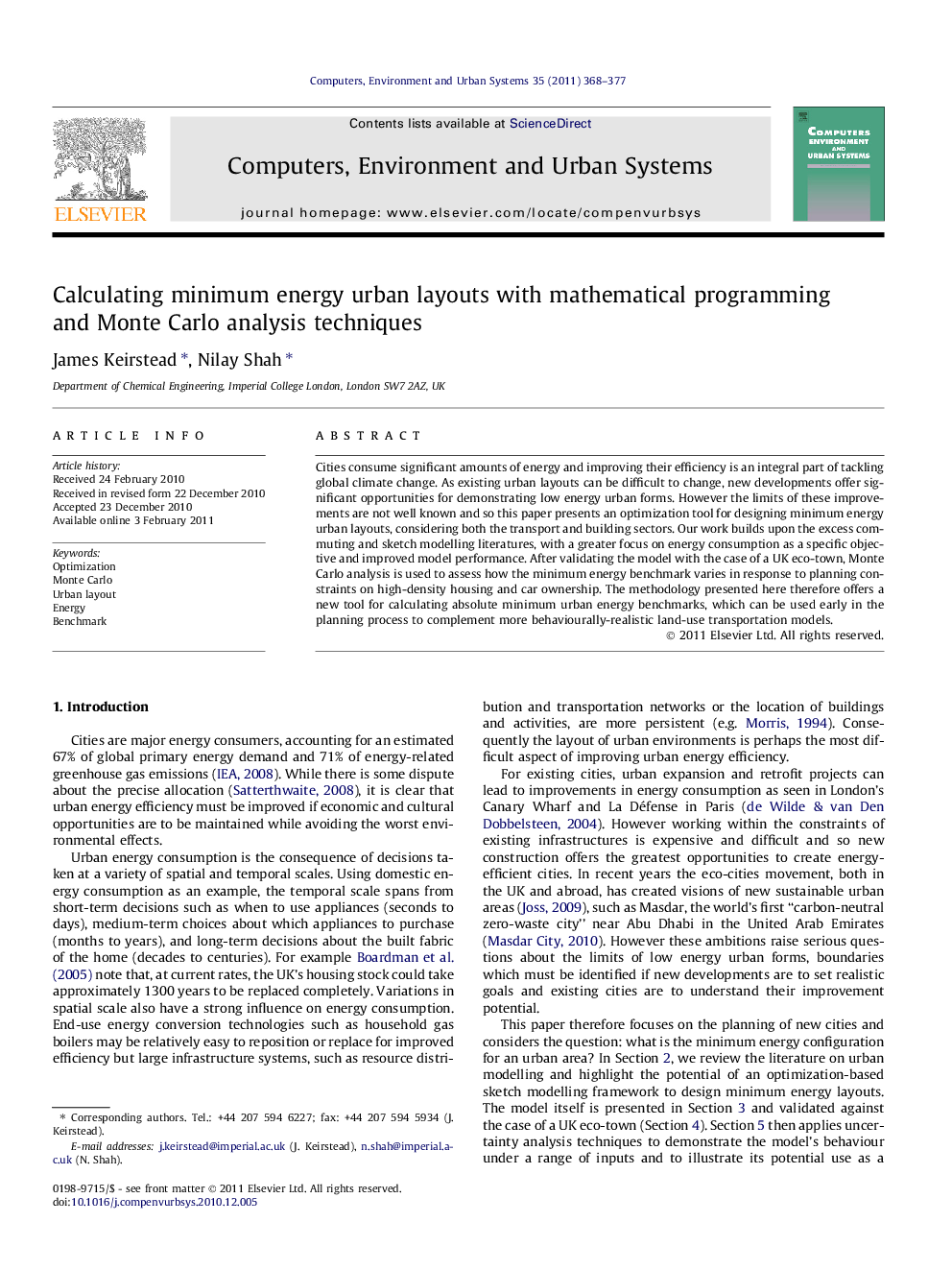| Article ID | Journal | Published Year | Pages | File Type |
|---|---|---|---|---|
| 506447 | Computers, Environment and Urban Systems | 2011 | 10 Pages |
Cities consume significant amounts of energy and improving their efficiency is an integral part of tackling global climate change. As existing urban layouts can be difficult to change, new developments offer significant opportunities for demonstrating low energy urban forms. However the limits of these improvements are not well known and so this paper presents an optimization tool for designing minimum energy urban layouts, considering both the transport and building sectors. Our work builds upon the excess commuting and sketch modelling literatures, with a greater focus on energy consumption as a specific objective and improved model performance. After validating the model with the case of a UK eco-town, Monte Carlo analysis is used to assess how the minimum energy benchmark varies in response to planning constraints on high-density housing and car ownership. The methodology presented here therefore offers a new tool for calculating absolute minimum urban energy benchmarks, which can be used early in the planning process to complement more behaviourally-realistic land-use transportation models.
Research highlights► Mixed-integer optimization useful for calculating minimum energy urban layouts. ► Housing density and car ownership limits can be assessed with Monte Carlo analysis. ► Technique best suited to assessing potential energy savings in new developments. ► Technique best suited to identifying minimum absolute, not feasible, energy benchmark.
